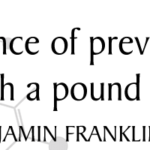One of my favorite “boilerplate” provisions now needs even more analysis. With state legislatures passing legislation and state court starting to issue rulings the choice of law governing your contract is more important than ever.
The most notable state is California. Straightforward compliance with the California Consumer Privacy Act is not the whole battle because California has a myriad of other pro-consumer laws that come into play. Therefore, all AI generated contracts–particularly employment contracts–need to be analyzed to avoid inadvertently causing California law applying to non-California residents.
Delaware also has trap doors that can hurt you. Under Delaware law, choice of law provisions do not impact “procedural” laws such as limitations periods. In a notable case from 2016, a contract was governed by New York law that imposed a three year statute of limitations for a particular claim. But the Court ruled Delaware’s six year statute of limitations applied because the contract did not specifically state New York limitations laws determine when a lawsuit could be filed.
It is easy to foresee AI companies analyzing statutes of limitations for consumer fraud, defamation, negligence, and other traditional state law claims until and unless Congress enacts AI legislation and the agency given responsibility promulgates final rules.
David Seidman is the principal and founder of Seidman Law Group, LLC. He serves as outside general counsel for companies, which requires him to consider a diverse range of corporate, dispute resolution and avoidance, contract drafting and negotiation, and other issues. He can be reached at david@seidmanlawgroup.com or 312-399-7390.
This blog post is not legal advice. Please consult an experienced attorney to assist with your legal issues.














